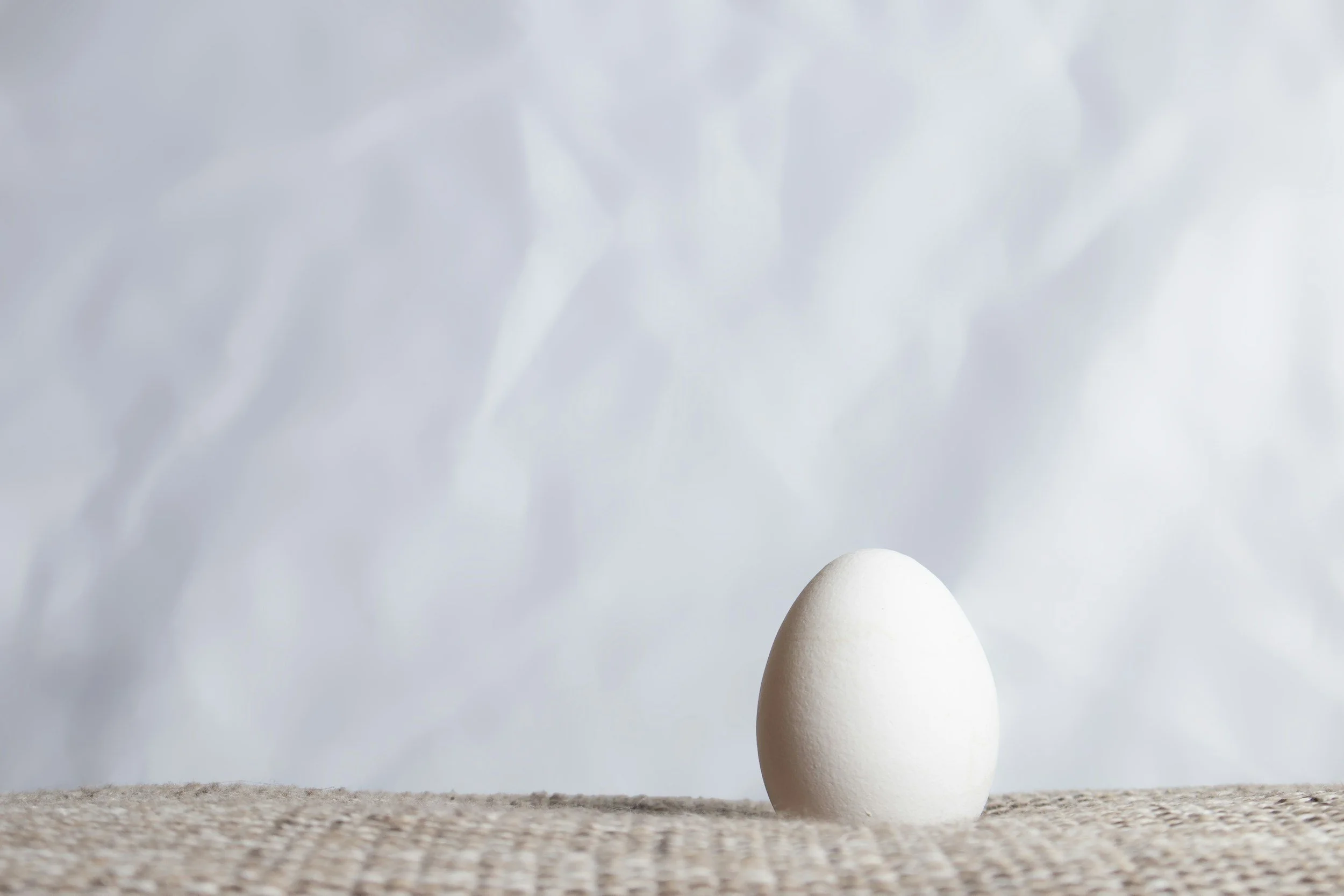How your Thyroid Could be Causing your Irregular Periods
Whilst irregular periods can have multiple causes, including perimenopause as well as hormonal health conditions such as PCOS, hyperprolactinaemia, and hypothalamic amenorrhea, the common cause of low thyroid function (hypothyroidism) can often be overlooked.
What is an irregular period?
Regular periods occur in cycles where ovulation occurs (an ovulatory cycle).
An ovulatory cycle has two distinct phases:
a follicular phase - from your period until ovulation
a luteal phase - from ovulation until your period.
Most irregular periods occur in cycles where ovulation does not occur (an anovulatory cycle).
An anovulatory cycle consists of a follicular phase only which can be followed by a breakthrough bleed, that should not be considered a normal period.
Signs of an anovulatory cycle include:
a cycle longer than 35 days
a cycle shorter than 21 days
a bleed that lasts more than 7 days.
Untreated irregular periods can have serious health consequences
Many women feel relieved that they don’t have a regular period, especially if it is often heavy and/or painful.
However, what many women are not told is that repeated anovulatory cycles can increase the risk of developing endometrial hyperplasia and/or uterine polyps, which can both increase the risk of developing endometrial (uterine) cancer.
Irregular periods can also impact fertility, making it difficult to predict when, or if, you will ovulate. If you want to conceive now or in the future, you can help to improve your chances of falling pregnant by treating the cause/s of your irregular periods, so you can ovulate more consistently.
How does low thyroid function cause irregular periods?
If you have irregular periods, it is essential to determine whether low thyroid function might be a potential cause. This holds true even if you have a diagnosis of hyperprolactinaemia or PCOS, because low thyroid function can often be an underlying cause of both of these reproductive health conditions.
Low thyroid function can:
increase the production of a hormone called prolactin, causing hyperprolactinaemia, a reproductive hormone health condition that has irregular periods as a main symptom
impair insulin sensitivity which can increase your risk of developing insulin-resistant PCOS, a metabolic and reproductive hormone health condition that has irregular periods as a main symptom
prevent your body’s cells from producing the energy needed for ovulation. It takes 100 days for your body to bring an egg to ovulation which requires a lot of energy. You need adequate levels of thyroid hormone to allow mitochondria, the energy producers of your cells, to function effectively. If you have low thyroid function, your body may not always produce enough energy to ovulate, which can cause irregular periods.
Low thyroid function can often be overlooked as a cause of irregular periods
If you have irregular periods, it is essential to get the full panel of thyroid testing ordered by a GP or naturopath.
You may have already been told by your GP that your thyroid is ‘fine’, even after repeated testing. However, most GPs only routinely test for one thyroid hormone, thyroid stimulating hormone (TSH), under Medicare.
The range for TSH is very broad, with anywhere from 0.5 to 5.5 being considered ‘normal’. However, studies have found that a TSH below 2 is optimal for female reproductive hormone health, fertility, and pregnancy.
Research recommends the thyroid hormones, Free T4 and Free T3, also be tested to help correctly diagnose low thyroid function.
In Australia, low thyroid function is most often caused by an autoimmune condition, Hashimoto’s thyroiditis, where your immune system mistakenly attacks your thyroid gland over time. This autoimmune attack eventually causes the thyroid to no longer be able to produce an adequate amount of thyroid hormones. Your dysfunctional immune system produces thyroid antibodies that are often present well before your thyroid hormone levels, TSH, Free T4 and Free T3, fall outside of the ‘normal’ range. Therefore, thyroid antibodies also need to be tested for you to find out if Hashimoto’s thyroiditis is causing your low thyroid function.
In summary, you should ask your GP or a naturopath who specialises in thyroid health to order the full panel of thyroid testing – TSH, Free T4, Free T3, and the thyroid antibodies, TPOAb and TgAb.
To encourage your GP or naturopath to order the full panel of thyroid testing, be sure to mention any low thyroid function symptoms you may be experiencing such as fatigue, low mood, brain fog, weight gain, dry skin, hair loss, and temperature dysregulation (e.g. always feeling cold).
Also mention any family history of thyroid and/or autoimmune conditions such as Crohn’s, Coeliac disease, and rheumatoid arthritis, as both thyroid and autoimmune conditions are often hereditary.
You can find a more extensive blog post here about how to ensure that you get the full panel of thyroid testing ordered by your GP or naturopath.
How to treat low thyroid function to regulate your periods
If your thyroid hormone levels fall outside of the ‘normal’ range:
Your GP will prescribe thyroid hormone replacement (thyroxine) which provides the hormone T4 that your thyroid can no longer produce in an adequate amount.
Optimising thyroid hormone levels with thyroxine will often help to regulate your periods, provided low thyroid function is the only cause of your irregular cycles.
Thyroxine will usually also reduce other low thyroid function symptoms such as:
fatigue
low mood
weight gain
brain fog
dry skin
hair loss
temperature dysregulation.
If your thyroid hormone levels fall within the ‘normal’ range:
If you still have many of the low thyroid function symptoms mentioned above, you may been in the early stages of low thyroid function, subclinical hypothyroidism.
If you have subclinical hypothyroidism, naturopathy can support your thyroid health to assist in regulating your periods, by helping to:
ensure you have adequate levels of the nutrients needed to make optimal levels of thyroid hormones
support adrenal, gut, and liver health to encourage healthy thyroid hormone conversion
treat the most common cause of low thyroid function in Australia, autoimmunity
You can find a more extensive blog post here about subclinical hypothyroidism and another here about how you can help improve healthy thyroid hormone conversion with naturopathy.
If you have elevated thyroid antibodies:
Regardless of whether your thyroid hormones levels fall inside or outside of the ‘normal range’, you may have an autoimmune condition known as Hashimoto’s thyroiditis, which is the main cause of low thyroid function in Australia as mentioned above.
Naturopathy can help reduce the autoimmune attack on your thyroid gland to assist in regulating your periods by:
ensuring you have adequate levels of the nutrients needed to modulate immunity
helping to correct gut dysbiosis and heal leaky gut, which are both drivers of autoimmunity.
You can find a more extensive blog post here about how you can help to treat thyroid autoimmunity with naturopathy.
In summary, if you have irregular periods and have not considered that low thyroid function may be a possible cause, you need to get the full panel of thyroid hormone levels tested.
If your levels are outside of the optimal range, both conventional and naturopathic treatment can help to regulate your menstrual cycles, protect your uterus, and improve your fertility.
Want to find out how I treat thyroid conditions and autoimmunity?
As a naturopath, I can develop a personalised treatment plan for you to treat autoimmunity, a common cause of thyroid conditions, to help you feel energised, shift weight, and think clearly. Take a look at my Thyroid service page for more info…




